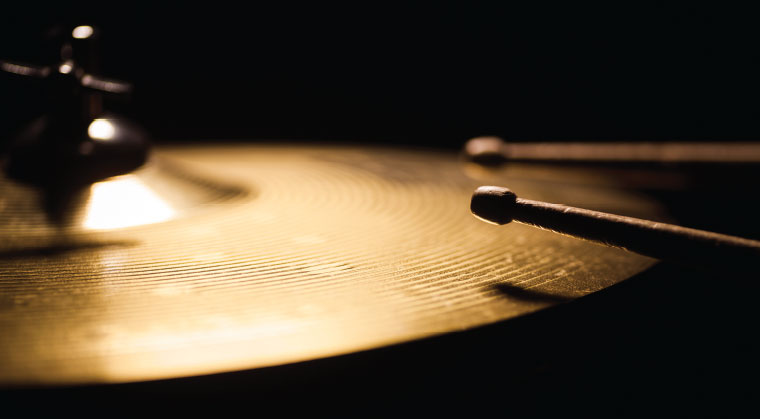Shades of Gray


As Told To Leah Gebber
G
uards can be eluded, bars dislodged. A prison built in the mind, though, needs special break-out tools. I have read of children born in the dark, dank prisons of Algeria. Their playmates are the scuttling, starving rats, the scope of their reality confined to the overcrowded cell that is their home. They have not even the imagination to play at jailbreak.
In my own way, I too was born in a prison. A pleasant prison, to be sure — not overcrowded, not rat-infested. On the outside, a warm, comfortable home. Inside, though, emotional repression reigned. But like that skeletal child in Algeria, I had no idea that I was incarcerated.
They say that a father is the first man in his daughter’s life. And if a father treats a daughter with cold cruelty instead of loving acceptance, it colors the rest of her life with shadowy fear.
My father is no overgrown child, whose vices can be explained away as problems. He’s thin and clean-shaven, with a razor-sharp mind and a predilection for deviousness. His hand, when I bend down and kiss it each Leil Shabbos, feels like sandpaper. Although he can walk like a young man, he carries a silver-topped cane, his only inheritance. He’s a person with presence, a person with an iron will, a person who quietly — oh, so quietly — demands that you conform. If you don’t, he’ll work it out, manipulating circumstances and people so that, without your knowledge or intervention, what he wants will happen.
I always thought that he was the most powerful being in existence. Besides G-d, of course.
I got married at 24, and settled blissfully into a rented apartment. We halfheartedly cast around for a place to buy, but it was obvious that we were priced out of the market. We were both earning, true, but our salaries, commensurate with our positions, were at the very bottom of the ladder. This was something that upset Daddy greatly, and he often harangued us: we were throwing away our money on rent, we didn’t realize the importance of being established in a home of one’s own, we were making poor decisions. On and on, until my husband was fed up with it all.
Not surprisingly, my husband had no interest in moving into my parents’ when our first child was born. But I contracted pneumonia in the hospital. I was left so terribly weak that I was frightened to be left alone the whole day with a newborn. So when Daddy arrived to chauffeur us to my childhood home, we didn’t resist. While we were learning how to secure diapers and guide flailing arms into tiny sleeves, Daddy was busy. Unknown to us, he ordered packers to go to our apartment and put all of our stuff into storage. Then he organized for our apartment to be sublet. By the time we realized what was going on, the new tenants had moved in and unpacked.
We were furious when we found out. More than furious; I caught a glimpse of the dark, primal side of anger, the negative energy that takes over your thinking. The very next day, my husband began searching, searching, searching for a place to live. I locked myself in my childhood bedroom and prayed for his success. We found a place — it was more a shell than a house, but it was cheap and we were desperate, so we snapped it up. To his credit, Daddy helped us with the down payment. Knowing that my husband would never accept the money, he wired it directly to our lawyer.
We moved in soon after that, thrilled to be in our own space again. What a joy — a space that actually belonged to us. And the bank, of course.
Everything needed fixing, from the electrical wiring to the stair structure. But that was exciting for me. Underneath it all, I’ve always had a creative flair, and I was excited at the opportunity to decorate a house from the foundations up, to make it our own, to put my personal brand of creativity on the house.
Fortunately, it was summer when we moved in. The sunshine and warmth made the primitive conditions bearable. We brought in experts to do what had to be done, and we managed everything else ourselves. My husband became skilled at repairs, and because I was still on maternity leave, I had time to browse through thrift shops and scour ads for second-hand furniture — couches, beds, dining room table, the works. I bought crisp lilac cotton and sewed curtains, and I even began a needlepoint for the freshly painted wall.
Slowly, our home was coming together.
There’s something about owning a home that lends richness to your sense of being. It transforms you from the impermanency of a nomad to someone with roots, a foundation, a history. Maybe it was the contrast to the end of the pregnancy that made me feel so light, but during that time, despite sleepless nights, I felt a surge of energy.
All too soon, the automatic bank deposits ceased and I had to return to work. A law firm is a high-pressure place to be. Part-time means full-time; full-time means working around the clock. There are even showers for those staying until the early hours of the morning. Each office is equipped with a recliner, and there is a 24-hour cafe on the ground floor. I worked all week until I dropped, but it wasn’t enough. Ironically, for a profession that has justice at its heart, practicing law seems like a perverted survival experiment.
I wasn’t the fittest.
After six months of humiliation, I lost my job.
I picked up the baby and drove home. As I walked through the house, running my fingers across the newly painted walls, the nodules of the pine banister, tears blurred my vision. Cuddling my baby close, I walked out into the garden. Just the previous Sunday, I had donned my thick leather gloves and knelt down on the damp earth, turning it over with a trowel, uprooting weeds, hiding daffodil bulbs deep in the ground. Without my income, there was no way we could afford to pay the mortgage. I would probably never see those daffodils sprout.
My husband, a graphic artist, got to work that very evening. While I was still sniffling into my pillow, he designed business cards and a letterhead. I loved the design but shook my head. By nature, I’m shy. Many of my acquaintances don’t even know I’m a lawyer. They just know that I work in an office, and that I keep crazy hours. I’m not good at networking. Correction: I’m terrible at networking. I didn’t see how I could ever build up a client base. I didn’t have the confidence, the courage to go it alone.
The day I cleared my desk for the last time, I drove over to Orah, a dear friend — a recent friend, not one who has accompanied me through kindergarten or school or even seminary. The excitement, the unexpected gift of this friendship has never worn away; talking to Orah is invariably different, refreshing. Perhaps what is most important to me is that she doesn’t know my family.
I went to visit her that morning. I’m a lawyer; I’ve been trained to look at situations rationally, to objectively analyze possibilities, and then to follow through. Orah, though, is a listener. For a long time, she listened to me sit and analyze aloud. Facts, figures, numbers, calculations. What we could afford to do, what we couldn’t. How much moving would cost, the possibility of another loan, the likelihood of finding another job. I showed her the business cards my husband had designed and printed the very day I got my notice. I laughed bitterly at his confidence in me, at the idea of starting out alone.
Orah listened. For a long time. Finally, she shook her head. “Do you know what your problem is?”
Of course I knew my problem: hadn’t I been detailing it for the past hour?
“It’s your attitude. You grit your teeth and you decide that you’re going to grin and bear it and you make yourself so brittle that you don’t allow the experience to change you. Only harden you.”
Orah ignored the way my back stiffened, and the slight, churlish curl of my lip. She stood up and began walking around the room. I followed her with my eyes.
“Think!” she instructed. “Think of all the opportunities that might result from you losing your job, your house. Think about the positive ways in which it will affect your self-worth, your marriage, your baby, your job, your relationships.”
I looked at her when she said that, hurt — no, stung. She was taking my predicament and throwing it back at me. Hurt morphed into anger. How dare she! Orah sensed my mood and gently guided me to the door. “Don’t be too brittle to change,” she told me once again. She dropped a kiss on my cheek and waved goodbye.
I thought about her words so much that I felt like I was living on a different planet from the people I bumped into on the streets, shopping for a carton of milk. Turning the question, the answers over and over in my head. The lawyer in me asked all the hard questions, and took those questions to their final resolutions. What would we do if we lost the house? I asked myself, drumming my fingers on the dark wood of our dining room table. It was the same shade as the desk in my office.
We’d move to an apartment.
How would we pay rent and survive without my job?
That was a hard one. But when I started answering it, I realized that it wasn’t all black and white. Of course, we’d have to tighten our belts, but it wasn’t like my husband wasn’t earning anything. Black and white became shades of gray.
There were harder questions, though. What will you be worth without a house to your name? How will you save face to your friends? How will you tell Daddy you failed him?
This last question wafted gently into my consciousness and exploded. I balked. What does that mean, to fail? my inner mind shot back. Is my self-worth defined by my house? Is it defined by Daddy’s approval?
The answers surprised me. After I had grieved the loss of our house, I knew that our little family could be happy in a rented apartment. Whatever Daddy thought or said or tried to manipulate. Since we’d gotten married, my husband had been asking me, begging me to reexamine my relationship with my father. Now, in the face of the harsh choice presented to us, I did it. As I did, I realized that I was no longer afraid of him.
We’re going to lose the house. Suddenly, that devastating line was liberating, beautiful. It even had the rhythm of a song: We’re-go-ing-to-lose-the-house.
It was beautiful because I knew what would happen if I did lose that house. I would still have joy, happiness. I would be me, exploring the fullness of who I am, who I want to be, divorced from my father’s expectations and demands. Leaving the house I loved — and leaving it happily — would prove to me that I was made of tougher stuff than I’d ever believed.
Some wounds never heal. I think that there will always be a gap in my heart, a place that is meant to be filled by a father, but isn’t. But I hope that, with time, that space will be filled instead by a loving G-d.
(Originally featured in Family First Issue 283)
Oops! We could not locate your form.













